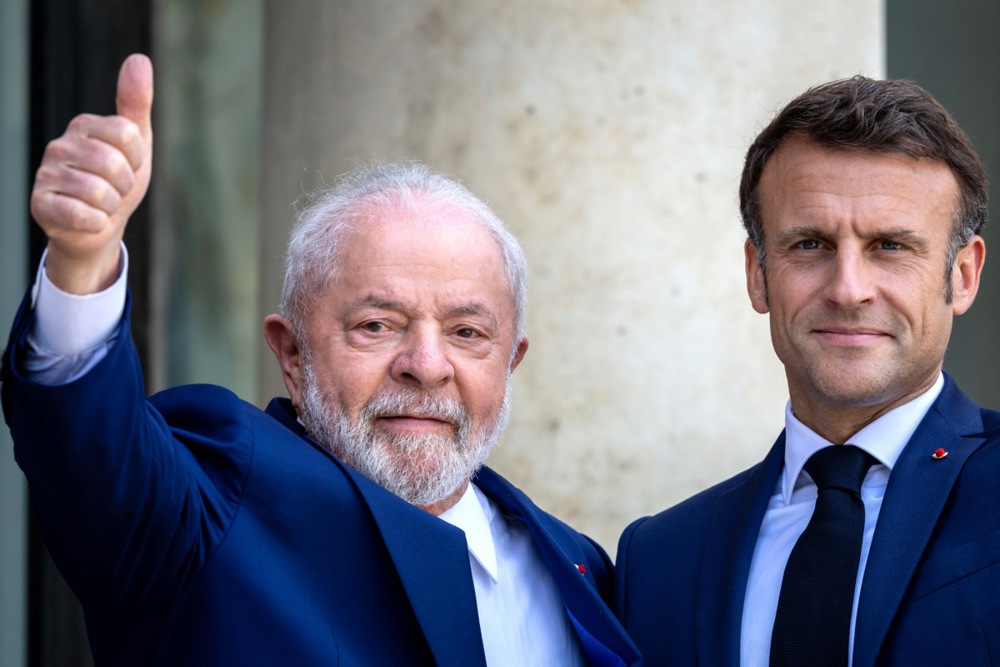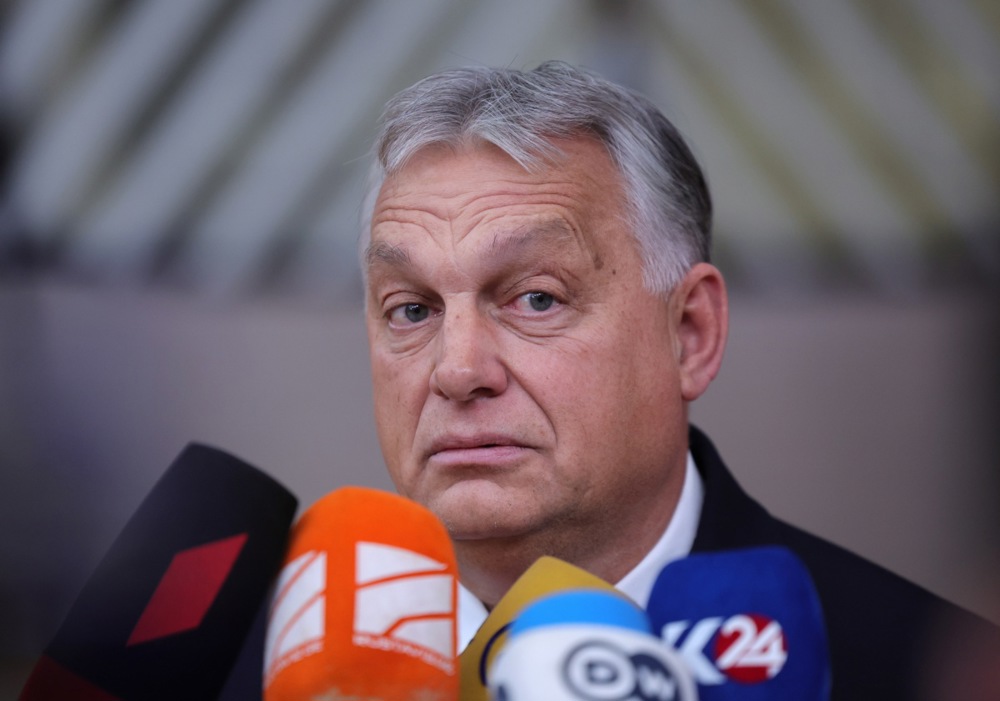War and struggle is the new normal, writes Brussels Signal reporter Carl Deconinck in his end-of-year review. And until now, the EU seems unwilling to admit, let alone tackle, this basic fact
We often hear the European Union created peace. But actually the reverse is true; peace created the EU.
The European Union often takes pride in its supranational foundation, one that claims to “make war unthinkable and materially impossible”.
The latter has become true within the EU, but not because it tangibly promotes peace in a durable way, or makes the outside world a better place.
Europe simply doesn’t fight serious wars because EU countries are in no way willing or even capable of doing so. They haven’t been since the Second World War.
The EU began with the European Coal and Steel Community, aimed at integrating fundamental military raw materials in one single common market on a principle of supranationalism.
France’s foreign minister Robert Schuman declared at the time “the solidarity in production” from pooling “coal and steel production” would make war between France and Germany “not only unthinkable but materially impossible.”
Clamouring about lofty principles is one thing; concrete reality is something entirely different.
When push comes to shove, the EU is weak and inept. For proof, look at the state of Germany, which neglected its army for decades, and France, which has just lost its influence and counter-terror military presence in Africa. These countries are but a pale shadow of their grand Cold War past.
Unfortunately, deceiving yourself is a tried-and-tested tradition in elite European circles, who often paint their continent as a shining city on a hill without doing any of the required heavy lifting to build it.
Take for example the concept of ‘soft power’, an idea purloined from the neoliberal branch of international politics that claims the west is able, mainly via cultural and economic influence, to change policy abroad.
There is a basic truth in the concept: civilisational powerhouses have an appeal, they are attractive and others emulate them. But where do we see this vis-à-vis contemporary Europe? Its globalist neoliberalism is surprisingly local.
Somewhat ironically, the authoritarian model of China and Russia has much more traction across the globe.
Progressive Europeans have turned the academic concept of soft power into nothing more than a self-serving belief with nothing to back it.
The idea Western nations are able to change how things are done abroad rests really on pompous and pretentious assumptions of ‘superior values’ in our enlightened, liberal progressive polity: a polity representing only a small minority of our continent, to be clear.
No matter how well-intentioned and noble the ideas of Robert Schuman and Jean Monet were, ideas flourish in specific circumstances and can carry you only so far.
It is hard, concrete reality that matters. And actions speak louder than words, much louder.
Pacifying relations, especially between France and West Germany, through gradual political integration and by creating common interests, was a good goal, but we need to bring in some perspective.
First and foremost, it happened because it served the United States, the big winner of the Second World War.
To a lesser extent, it happened because neither France nor Germany were up for going to war at all. They weren’t even keen on keeping their impoverished third-world colonies.
Ever since, Europe has been a second-tier entity at best, dancing to the tune of the benevolent powers in Washington.
While the US carried the main burden of maintaining a Western world order, creating peace and prosperity backed by taxpayer money, and even more by the blood of their young men, Europeans were busy feeling morally superior while riding on the coattails of Uncle Sam.
Maybe, as a whole, social security is better organised in the Old World; granted, it seems to attract people from all corners of the planet, though this hardly seems like a goal Europeans wanted to score.
Even when things went well, and Communism fell (at least in Russia and Eastern Europe), neither the EU nor any Member State was able to make a notable difference in what happened geopolitically.
Not in Rwanda, not in Somalia, and not even in the Balkans, the EU’s own backyard.
Sending money and hoping for the best was all we could – and still can – do.
And that was at a time when military stockrooms were full and reasonably maintained in aftermath of the Cold War.
The last couple of years have seen a nadir, the most dangerous since the conception of the European bloc.
We have two hot wars at our borders, and radical Islamism is spreading across most big cities in the West, with transnational narco-criminality a finishing touch.
While vital issues are threatening the core of its being, all European elites do is make noise, outperforming the violin orchestra on the Titanic.
Von der Leyen, Michel, and Borrell talk daily about plans to make the EU more sustainable, greener, stronger and richer, while ignoring more pressing matters.
Emissions are higher than ever, and economically we depend on bellicose dictatorships, while our middle class is disappearing.
The most glaring example of European powerlessness lies, of course, on the military side.
While the EU claims to be a force for peace, the reality paints a different picture.
The ancients knew: si vis pacem para bellum.
But these ancients are long gone. There is no European army, no European vision on vital geopolitical goals, no European safety structure, except Nato: again, paid for and implemented by Americans.
There have been enough crises to awaken European elites from their slumber.
Take, for example, the Arab Spring. Unfortunately, Europe proved to be a political lightweight. Libya and Syria are now in a shambles, Tunisia’s peace is questionable at best, and after the Muslim Brotherhood’s period of power, we’re frankly lucky a new dictator took power in Egypt.
But it was in 2023 that we reached rock bottom and things properly spiralled out of control.
Russia was able to commence a war of aggression right at the borders of Europe, within driving distance of Berlin. The Kremlin, rightly, did not fear a meaningful reaction.
Next to hollow gestures and empty words, and of course, a Ukrainian filter for pictures on social media, Europe could only provide a modest drip of arms and ammunition for Kyiv, while chronically underinvesting in its own military capacity.
This did not inject some dearly needed modesty into the discourse. On the contrary: grandiose and aggressive statements were thrown around gratuitously while in essence, the EU is sending money and hoping for the best, yet again.
A credible peace plan remained absent all along.
While war returned to the European mainland, others broke out in its periphery. Armenia, a rare democracy in the Caucasus, whose Christian diaspora has a large presence in Europe, saw its historical lands taken by Azerbaijan, an autocratic, bellicose country, and ally and key gas provider to the EU.
And amidst all this failure, we see that the politicians directly responsible for leading us into this mess are hailed as enlightened leaders.
Take Ursula von der Leyen, who saw one of her most major projects, the Green Deal, totally defanged; who was absent and late when the pandemic madness popped up; who mishandled the Pfizer agreement by paying too much and hiding her messages; who saw her commissioners running away for other jobs while she was fighting over foreign policy with Charles Michel.
One might think von der Leyen’s disastrous track record as German defence minister might have served as useful warning, but it did not. And neither is her current track record. Even ‘better’, she is so popular that she seems to have her choice of jobs. She could become chief Commissioner again, while some even say she should lead Nato (in so far Europeans ‘lead’ Nato, of course).
We have not even mentioned more fundamental issues undermining our continent’s core: the drop in educational standards; the self-inflicted ‘Green’ energy crisis; the lack of affordability of our social security; the inverse population pyramid; the war (?) on drugs; ‘wokery’ nibbling at our institutions and even civilisational foundations; and of course, the failing migration model and untenable mirage of multiculturalism.
To say the European Union isn’t exactly a formidable power, inciting fear or awe, is an understatement.
But let’s at least start by not lying to ourselves.
We have lived in exceptional times, when war was a distant thing.
Those times are over. Now we must step up, and so must Brussels.





